
Decentralized Physical Infrastructure Networks (DePIN) are rapidly redefining how connectivity and digital resources are distributed, and Dawn Internet Solana stands at the vanguard of this transformation. By leveraging the speed, affordability, and composability of Solana’s blockchain, Dawn is building a decentralized wireless broadband network where users become their own internet providers. This isn’t just a technical shift; it’s a fundamental reimagining of who controls, profits from, and governs our access to the web.

How Dawn Internet Empowers Community-Owned Connectivity
Dawn Internet, developed by Andrena, is not your typical ISP disruptor. Instead of competing with legacy telecoms on their turf, Dawn sidesteps them entirely by enabling anyone to share their excess bandwidth through a mesh network. Participants deploy specialized hardware – notably the DAWN Black Box, a next-generation WiFi 6E router – on rooftops or in homes. This device doesn’t just distribute internet locally; it connects with other nodes to form an organic, resilient web of connectivity that grows stronger as more users join.
The true innovation lies in community bandwidth sharing. Users can sell or share unused internet capacity directly with neighbors or passersby, transforming what was once wasted bandwidth into an income stream. Think of it as turning your WiFi into a side hustle – but instead of relying on centralized platforms or cumbersome contracts, everything is handled transparently and automatically via smart contracts on Solana.
Solana’s Role: Speed, Scale, and Trustless Coordination
Why build this on Solana? The answer is simple: sub-second synchronization, ultra-low fees, and global consensus make Solana uniquely suited for high-frequency infrastructure coordination. Every transaction – whether it’s buying an hour of WiFi from a neighbor or verifying node performance – settles quickly and cheaply. This architecture is crucial for supporting the microtransactions that underpin DePIN bandwidth sharing at scale.
Dawn’s choice to anchor its network on Solana also means that every participant benefits from open composability with other DePIN projects in the ecosystem. For example, the January 2025 partnership with Helium integrates DAWN’s broadband nodes with Helium mobile hotspots to unlock seamless last-mile connectivity (read more). As 8,000 DAWN nodes join Helium’s infrastructure, both networks gain reach and resilience without sacrificing decentralization.
Key Benefits of Joining DAWN Internet’s Decentralized Network
-
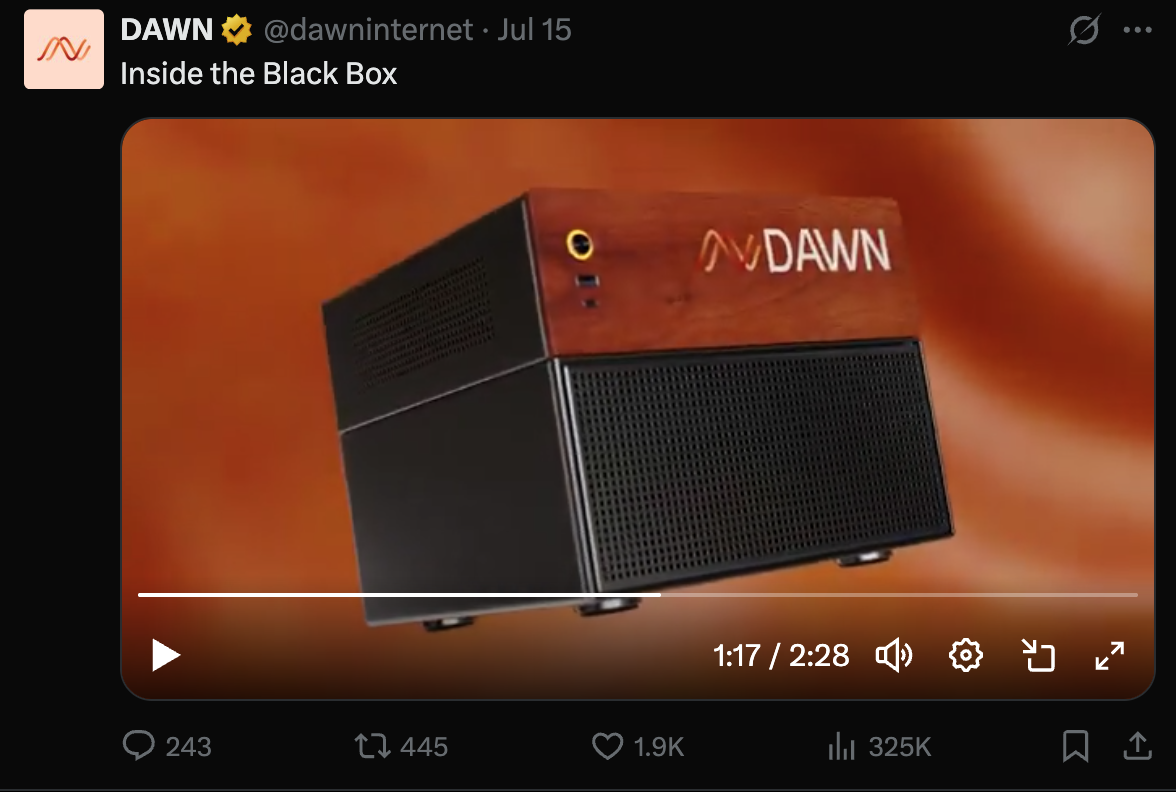
Monetize Your Unused Bandwidth: DAWN enables users to sell excess internet capacity directly to others, transforming your WiFi into a revenue-generating asset.
-
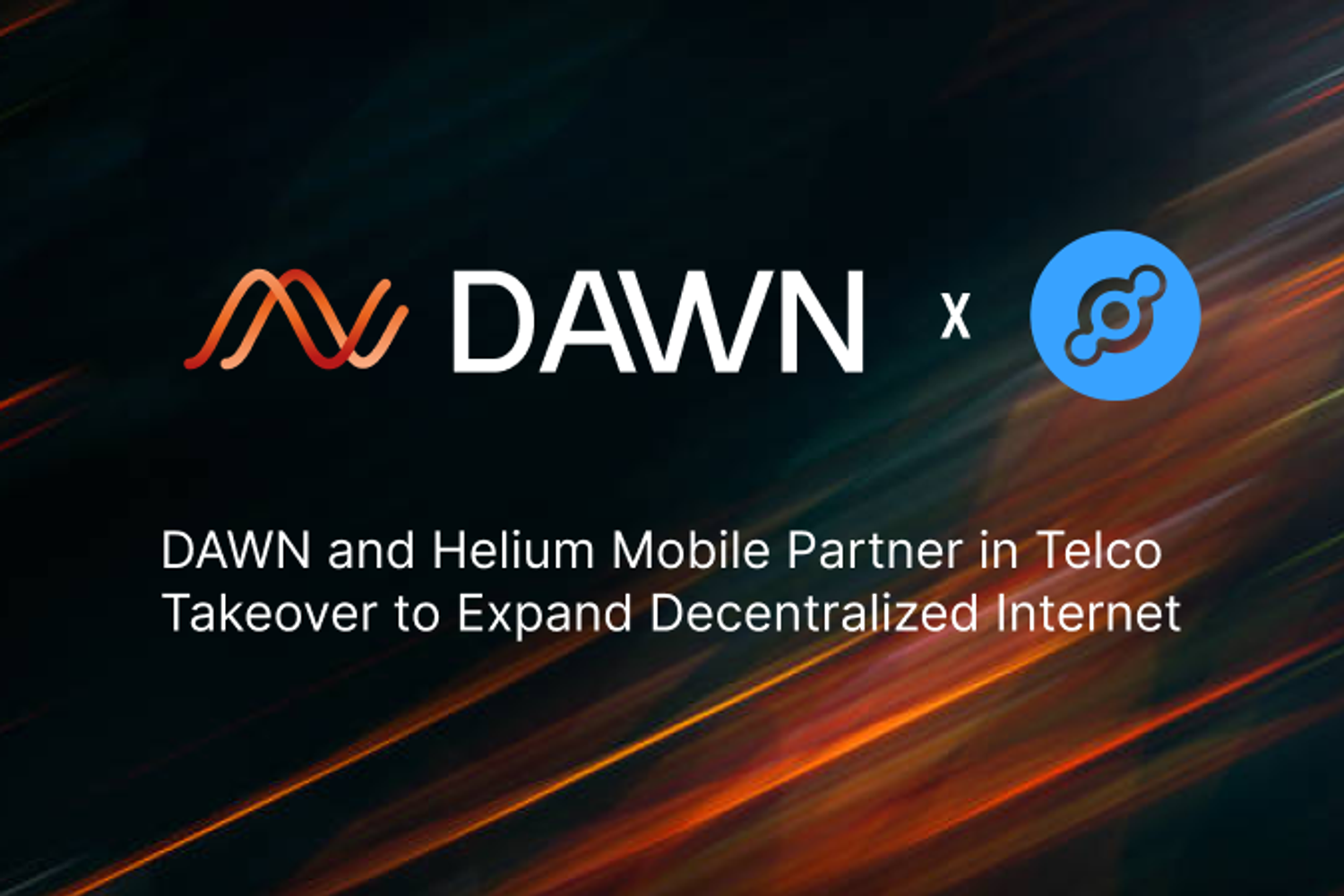
True Connectivity Sovereignty: By joining DAWN, individuals become their own internet providers, gaining control over how and with whom they share access—without relying on traditional ISPs.
-
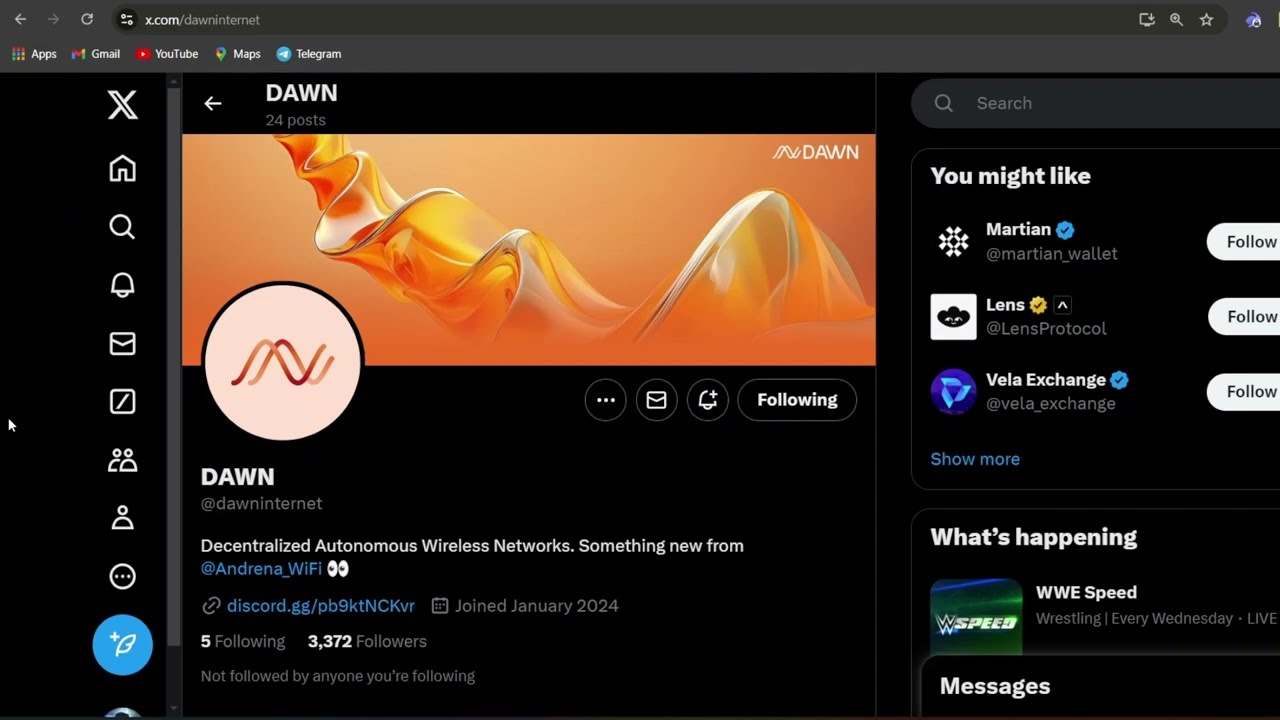
Enhanced Network Reliability via Proof of Backhaul: DAWN’s unique ‘proof of backhaul’ system, developed with Princeton University, ensures each node’s throughput is verified, maintaining high performance and trust across the network.
-

Affordability and Accessibility: The decentralized model reduces costs by eliminating middlemen, making broadband more affordable and accessible to underserved communities.
-
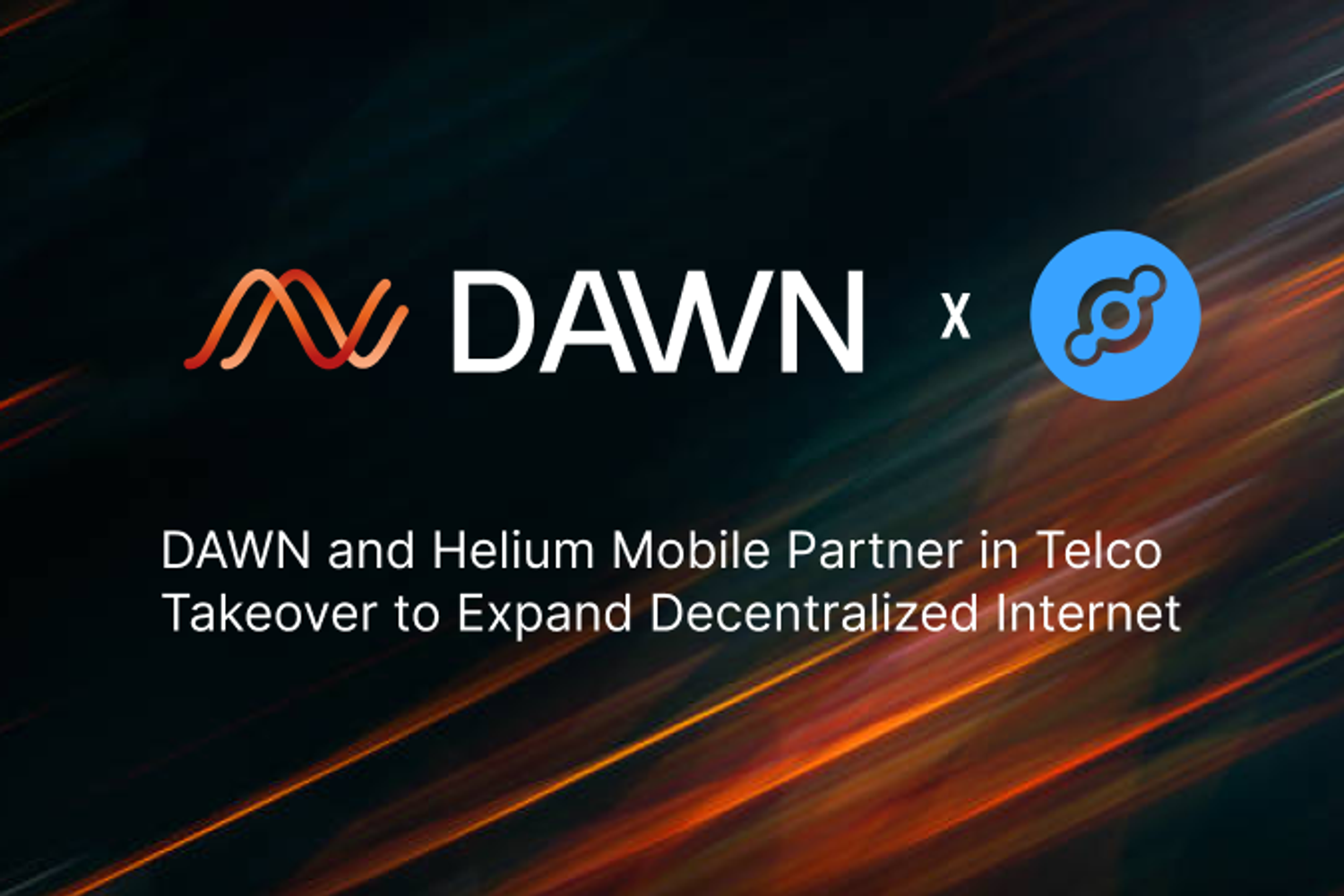
Seamless Expansion Through Helium Partnership: DAWN’s integration with the Helium Network connects 8,000 DAWN nodes to Helium’s mobile hotspots, expanding coverage and efficiency for community-owned internet.
-
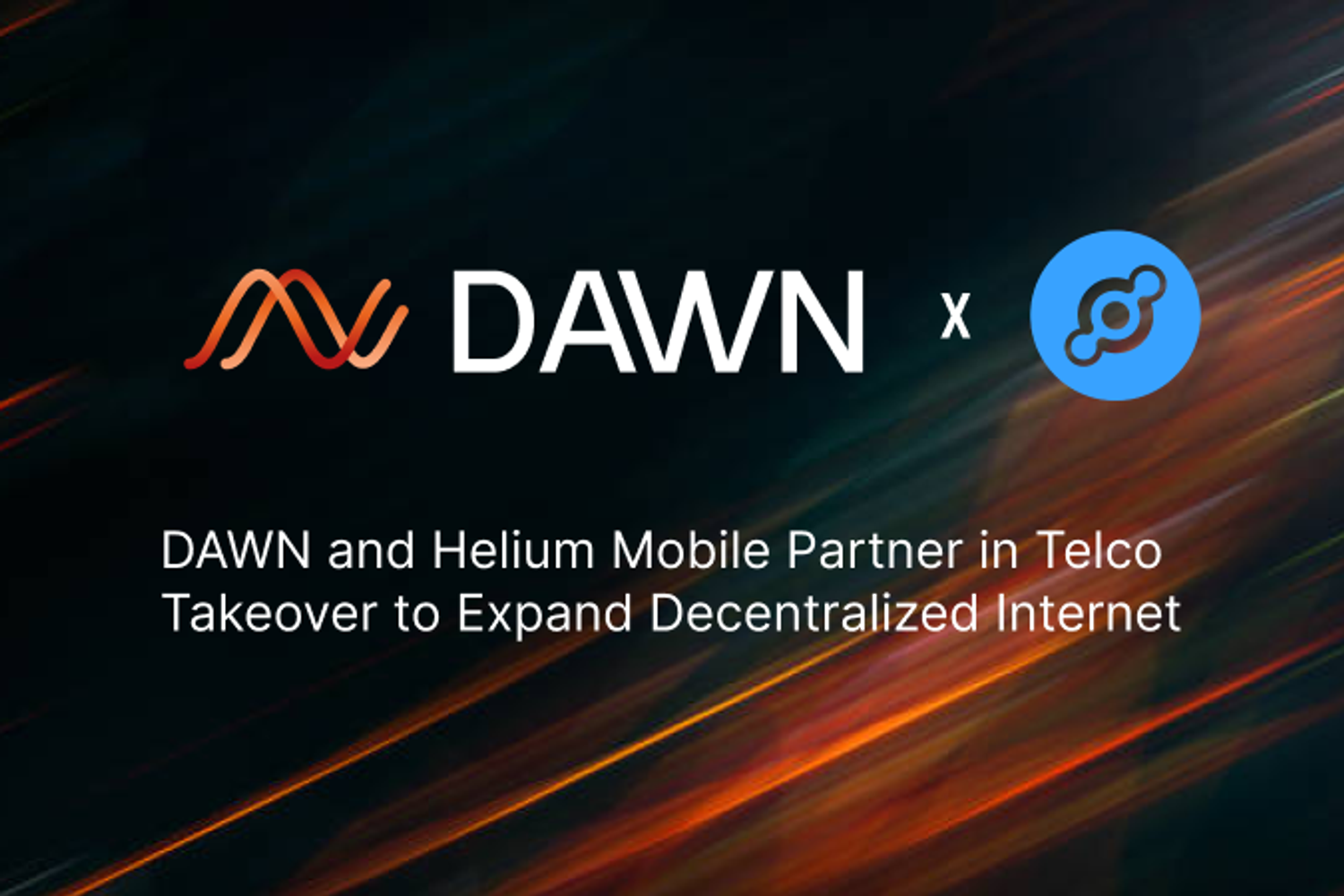
Powered by Solana’s Speed and Low Fees: Leveraging the Solana blockchain, DAWN offers fast transaction times and minimal fees, ensuring efficient and cost-effective network operations.
Proof of Backhaul: Ensuring Reliability in a Decentralized Mesh
No decentralized network can thrive without robust verification mechanisms. That’s why Dawn collaborated with Princeton University professor Pramod Viswanath to develop “proof of backhaul” – a cryptographic system that quantifies each node’s throughput capabilities in real time (source). This ensures that every user buying bandwidth receives reliable service while rewarding those who provide high-quality connections.
The proof-of-backhaul protocol underpins trust in the mesh without relying on centralized authorities or opaque metrics. It also enables dynamic pricing based on actual performance data rather than static contracts or marketing claims – aligning incentives for both providers and consumers within the community-owned internet Solana vision.
For users, this means that participating in the Dawn Internet Solana network is not just a matter of plugging in hardware and hoping for the best. Instead, every node’s contribution is transparently measured, and rewards are distributed based on real, verifiable service quality. This approach eliminates the risk of “freeloaders” or unreliable nodes dragging down network performance. It also allows for rapid scaling: as more participants deploy DAWN Black Boxes and connect to the mesh, bandwidth supply becomes both more abundant and more reliable.
The economic layer is equally compelling. By leveraging Solana’s microtransaction capabilities, Dawn Internet enables granular, pay-as-you-go pricing models that are impossible for legacy ISPs to match. For instance, a user might pay a few cents to access high-speed internet for an hour while passing through a city neighborhood, no contracts, no data caps, no friction. At the same time, node operators are incentivized with Dawn Internet rewards, which can be earned in real time based on their actual contribution to network throughput.
Dawn Internet Rewards: Incentivizing Sustainable Growth
One of the most strategic elements of Dawn’s model is its robust rewards structure. Node operators accrue points or tokens that reflect their uptime and bandwidth provided, a model reminiscent of how solar panel owners can sell excess electricity back to the grid. These rewards can be redeemed or traded within the broader Solana DePIN ecosystem, fostering a circular economy where value creation stays within the community.
This system also opens up new opportunities for urban and rural communities alike. In areas where traditional ISPs have little incentive to build out infrastructure due to low profit margins, DAWN’s decentralized approach flips the script: local residents become stakeholders in their own connectivity future. The result is not just improved access but also a sense of ownership and agency over digital resources.
Top Ways to Earn Dawn Internet Rewards by Sharing Bandwidth
-
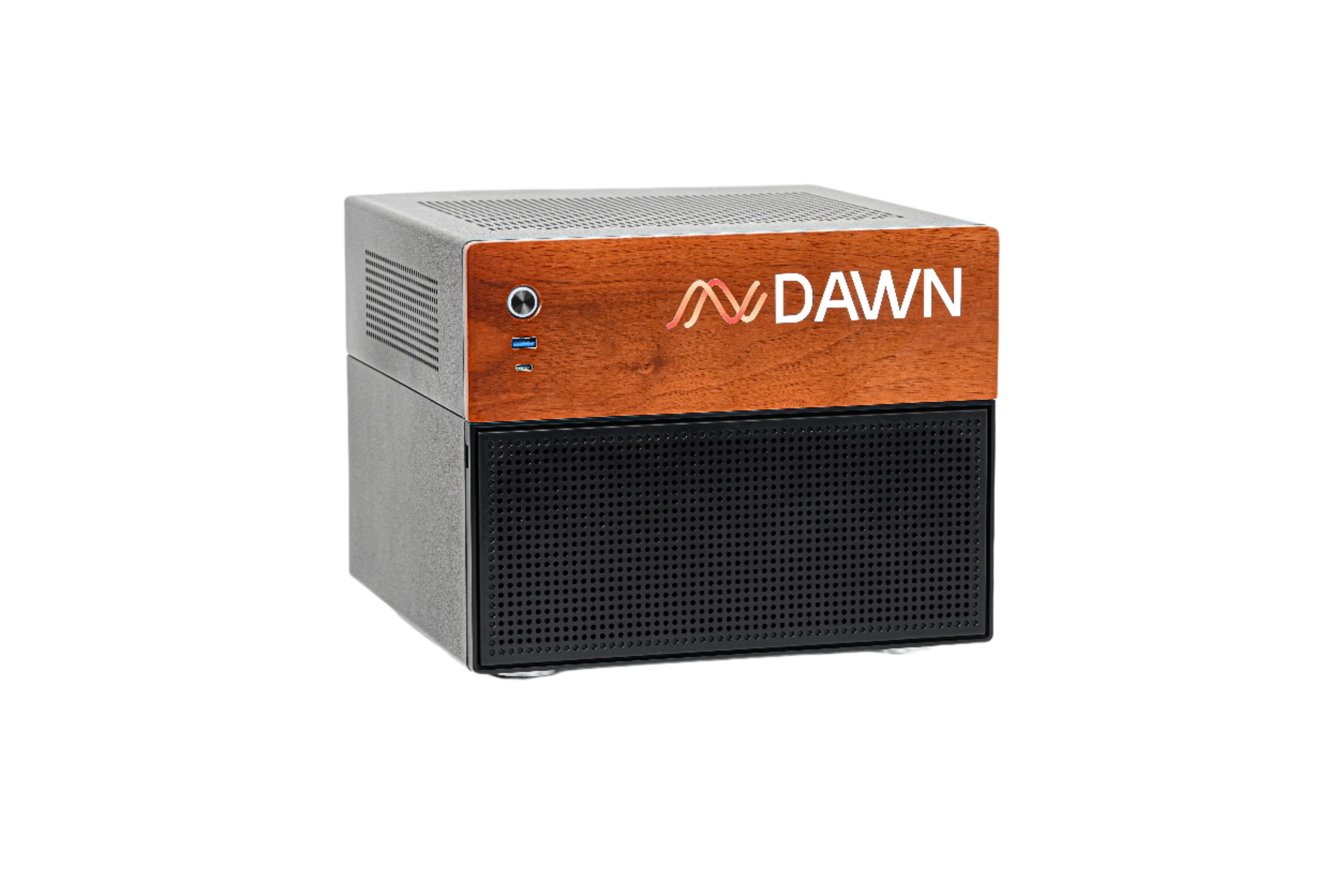
Deploy a DAWN Black Box Node: Set up a DAWN Black Box (WiFi 6E router) at your location to share your internet bandwidth and participate in the decentralized network.
-
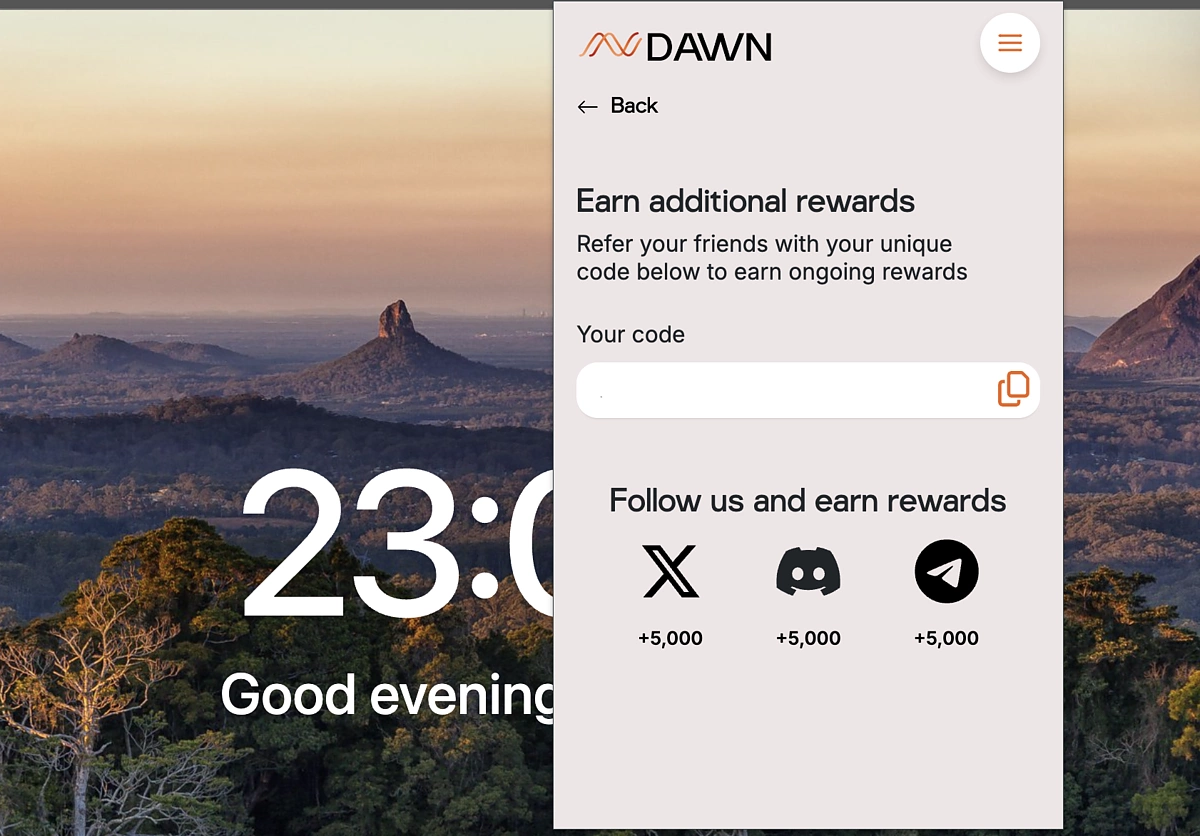
Provide Verified Backhaul Capacity: Earn rewards by supplying reliable, high-throughput internet connections that are validated through DAWN’s proof of backhaul mechanism, ensuring your node contributes meaningfully to network performance.
-
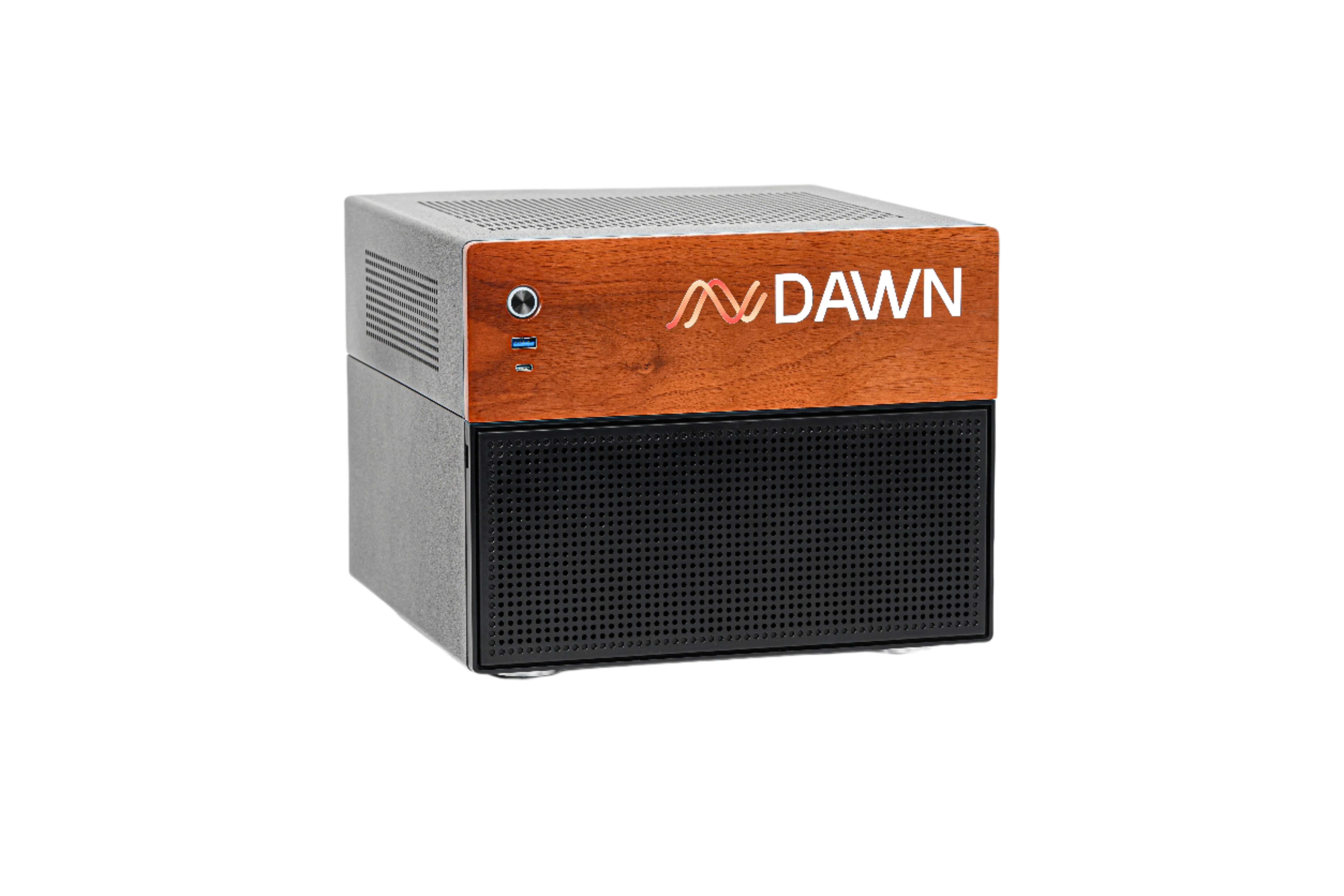
Join the DAWN-Helium Partnership Network: Connect your DAWN node to the Helium Network to extend last-mile connectivity, increasing your earning potential through expanded coverage and user access.
-

Enable Mesh Networking: Participate in DAWN’s mesh network by linking your node with nearby DAWN Black Boxes, which helps route data efficiently and maximizes both network resilience and your potential rewards.
-
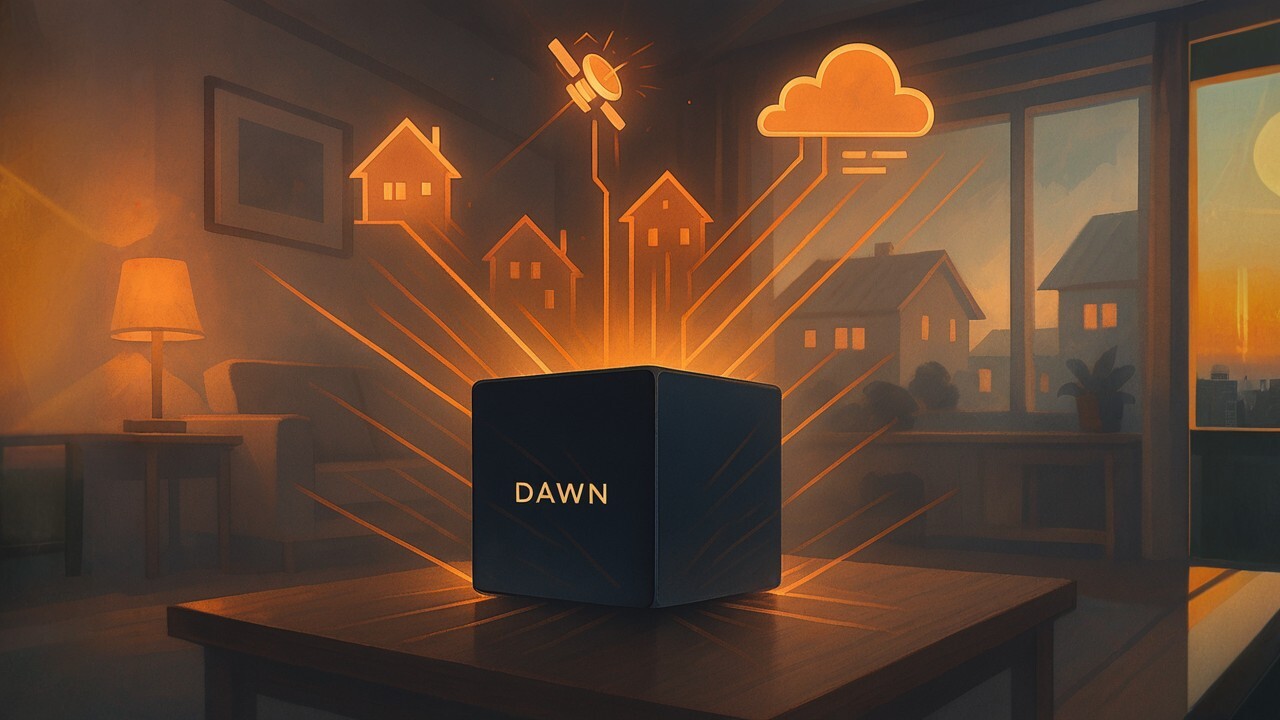
Facilitate Community Internet Sharing: Allow neighbors and local users to access your shared bandwidth, monetizing excess internet capacity and supporting affordable, decentralized connectivity in your area.
Solana DePIN Projects: A New Era for Community-Owned Infrastructure
Dawn Internet’s success signals a broader trend within Solana DePIN projects: shifting digital infrastructure from centralized monopolies to user-owned networks optimized for resilience and inclusivity. With Solana as the backbone, these projects benefit from composability, meaning innovations in one part of the ecosystem (such as proof-of-backhaul or dynamic pricing) can rapidly propagate across others.
Looking forward, Dawn’s partnership with Helium exemplifies how cross-network collaboration can accelerate adoption while maintaining decentralization (more details here). As 8,000 new nodes join Helium via DAWN hardware deployments in 2025, we’re witnessing not just incremental change but a fundamental reordering of how physical connectivity is provisioned at scale.
Why This Matters Now
The global push toward censorship-resistant, affordable internet has never been more urgent. Traditional ISPs remain bottlenecked by outdated business models and regulatory inertia; meanwhile, demand for reliable broadband continues to surge worldwide. By empowering individuals to become providers, and rewarding them transparently, Dawn Internet offers a template for sustainable growth that aligns incentives across all stakeholders.
For investors and builders monitoring decentralized internet Solana trends, DAWN stands out as both an immediate opportunity and a long-term paradigm shift. With its focus on provable reliability (via proof-of-backhaul), seamless integration with other DePIN protocols (like Helium), and an economic model built around real-time microtransactions and fair rewards, the project encapsulates what makes community-owned internet on Solana genuinely transformative.






